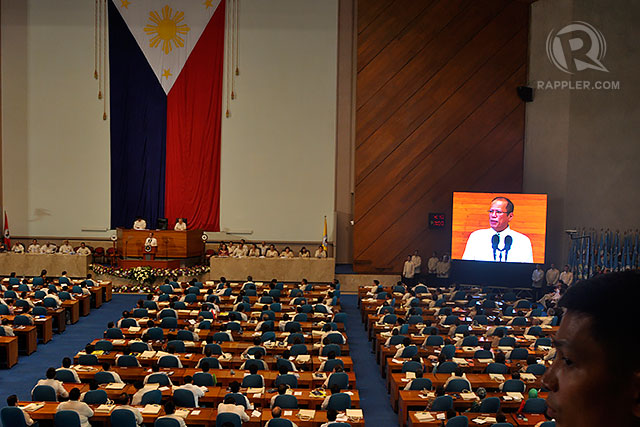SUMMARY
This is AI generated summarization, which may have errors. For context, always refer to the full article.

MANILA, Philippines – Responding to the growing demand for transparency in the budget process, a senator suggested on Monday, December 9, to make the bicameral conference deliberations more interactive by putting it out on social media.
Senate Majority Leader Alan Peter Cayetano appealed to the bicam panel to use Facebook and Twitter to harness public feedback and suggestions when both chambers of Congress start reconciling their versions of the 2014 general appropriations bill (GAB).
“We could make this exercise more transparent and interactive by using social media platforms such as Facebook and Twitter to get feedback, suggestions from ordinary Filipinos and netizens,” Cayetano said.
It is in the bicameral conference where the conflicting provisions of the Senate’s and the House of Representatives’ versions of the budget bill shall be reconciled.
Public clamor to make the bicam meeting public came on the heels of the alleged pork barrel scam, involving the abuse of public funds through fake non governmental organizations (NGOs) in collusion with some lawmakers.
According to the Cayetano, making the bicam conference interactive will “help in restoring the faith and confidence of the people in the Senate and in the House of Representatives.”
Promoting transparency
Cayetano said that the social media can pave way for a healthy dialogue between public officials and their constituents on policies that directly affect them.
“Never has the Filipino people been more empowered to have their voices heard in high places in government than now, with all the avenues being made available by social media.” Cayetano added.
In an earlier event co-organized by Rappler and Open Budget Partnership, Commission on Audit (COA) Chairperson Grace Tan and Department of Budget and Management (DBM) Undersecretary Richard Bon Moya echoed the idea of encouraging public involvement through the various social media platforms. (READ: ‘People can help’ watch over funds – DBM, COA)
Through a twitter post, Senate finance committee chairman Francis “Chiz” Escudero has already announced that the bicam deliberations will be open to the public.
However, Senate President Franklin Drilon said that, since the bicam deliberations involve both chambers of Congress, “its current leadership will make that decision.”
Bicam deliberations are traditionally held behind closed doors. It is in this stage where lawmakers elected to the bicam committee allegedly railroad controversial insertions in the national budget.
Kabataan Representative Terry Ridon is proposing a Bicameral Meeting Transparency Act or the House Bill 1492. Aside from the opening bicameral meetings to the public, the bill also seeks to require the committee to make available the minutes of the deliberations.
The bill also seeks to allow lawmakers who are not part of the bicameral panel to attend the deliberations provided that they are granted the consent of the chair.
“The public deserves better than pleading for publicly-broadcast hearings every so often. We need to pass a bicam transparency law now,” Ridon added. – Rappler.com
Add a comment
How does this make you feel?
There are no comments yet. Add your comment to start the conversation.